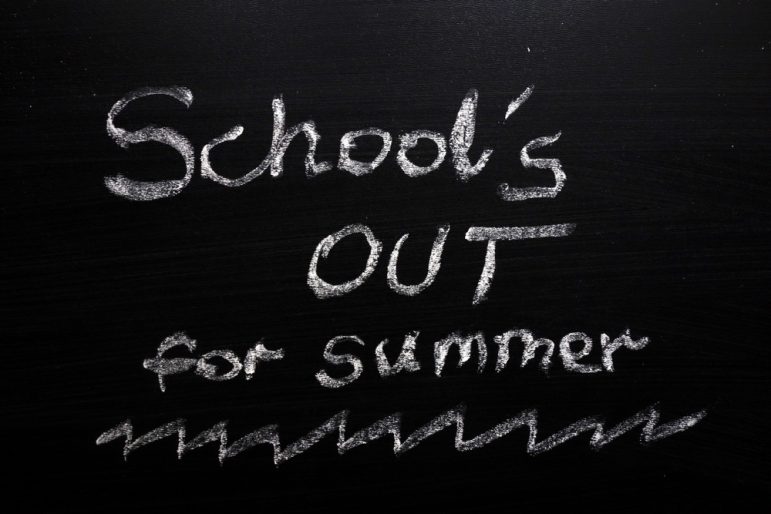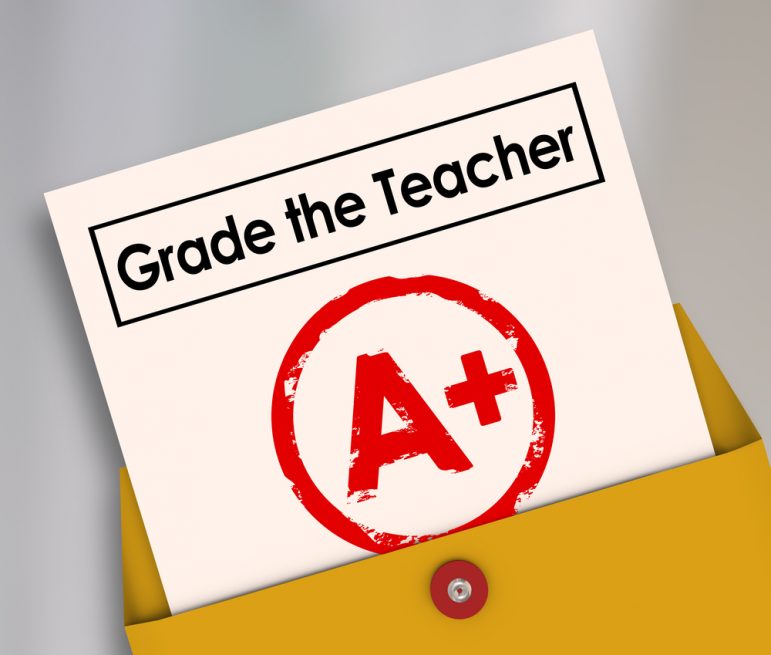
By Julie Holderbaum, Minerva EA/OEA
Now that summer is here and you have time to breathe and reflect on the school year that just ended, maybe you’re feeling that your year was just, well, average.
If each year of your career is a song on an album, there are a number of reasons why this past school year isn’t going to make it to your greatest hits compilation.
Maybe you had a challenging schedule, a new prep or a new grade level. Perhaps you had a group of kids who didn’t work well together, or who were less academically capable than previous groups.
Maybe you had to learn how to work with a new colleague very closely, which even in the best of circumstances is a stressor. Maybe you lost your best teaching buddy to another school or district, the one whose room you could walk into, shut the door, and say, “You won’t believe the day I had” and vent your frustrations with no worry of judgement.
Maybe there was an administration change in your building that didn’t go smoothly.
Maybe your students confided in you more than usual and you know who has probation officers, pregnant girlfriends, and neglectful or abusive home situations. You know who is having sex and who is drinking on the weekends and who is bouncing from one friend’s couch to the next since there is nowhere else to live. Frankly, what you know about your kids’ personal lives is a heavy burden that weighs on you at school and does not dissipate just because you walk through your own front door at the end of the day. In fact, it gets heavier when you look around at your healthy family and your safe, comfortable home and your belongings that would be luxuries to so many of your students.
“Stress is stress and it doesn’t always stop and start as we move between home and school.”
Perhaps you had a particularly stressful personal year. You went through a breakup, or your child started driving or dating, or everything that could break in your house, broke. Maybe a loved one passed away unexpectedly, or maybe you watched someone you love die a slow death, and even though you had time to say goodbye, it still hurts deeply. Either way, grief can wash over you like a tidal wave, soaking every part of your life, even when you’re at school. Personal stress affects who we are in and out of the classroom, and professional stress impacts our personal lives as well. Stress is stress and it doesn’t always stop and start as we move between home and school.
 Maybe you feel like you didn’t do enough to support your profession this year.
Maybe you feel like you didn’t do enough to support your profession this year.
You didn’t rally at the statehouse, you didn’t email or call one single legislator, and you didn’t go to union meetings.
Social media alone bombards you with reasons to do all of those things, especially in Ohio, and it can be completely overwhelming to try to keep up with all the reasons we have to be activists, let alone make time to take action.
And then maybe you looked around and saw teachers who can do it all.
Nothing average about them, not this year or any year.
They advocate fiercely and ceaselessly for public education, create new ways to teach old material that inspires students and garners positive attention from administrators, and they balance work and school stress with aplomb. They have boundless energy, unlimited ideas for positively impacting kids and schools, and good days far more often than bad. They reap the rewards of their efforts with outstanding test scores and any number of teacher awards or honors. They are resilient and resourceful and recognized, and THEY ARE CHANGING THE WORLD while you are just trying to get through the day and the faculty meeting at the end of it.
Listen. Those teachers don’t exist. Some people fake it better than others, but we all have work stress that weighs on us, problems that can’t be solved with a new lesson plan. We all have personal lives that involve some broken hearts and broken appliances. We all recognize the value of the work of the OEA to help teachers advocate for our students and our working conditions, but we can’t be Norma Rae standing on a table holding high a sign that says UNION every day. After all, it’s hard to teach while holding a sign and standing on a table.
True, it’s important to strive toward professional success and to have compassion for our students, even if their stories weigh on us. It’s important to have rich personal lives, even if they are, at times, painful. It’s important to fight for public education, even though the battles can be exhausting.
But it’s equally important to recognize that no one can excel at every part of life for any extended period of time. For various reasons, we have years that are simply average, probably more often than not. You know why there are movies about Erin Gruwell (Freedom Writers) and LouAnne Johnson (Dangerous Minds). Because teachers like that, as wonderful as they are, are anomalies. Most of us never reach those heights and no one expects us to.
 Dave Stuart Jr., in his excellent book These Six Things, articulates this concept so well: “We are never finished becoming the teachers we hoped we’d be when we first set out.”[1]
Dave Stuart Jr., in his excellent book These Six Things, articulates this concept so well: “We are never finished becoming the teachers we hoped we’d be when we first set out.”[1]
The key is in the phrase “never finished”. Maybe you had an average year, for whatever reason. But think back to your first years of teaching. Are you better now than you were then? Most likely you are. There is no guarantee that we will one day be adorned with accolades and gold medals for teaching greatness. However, if we continue to strive to have a positive impact on the kids who walk into our classrooms every year, I think we are doing the job right.
We don’t always see, in immediate hindsight, the seeds that we have planted and the impact that we have had. During your “average” year, you may have unknowingly made one comment that turned around a student’s perspective on your subject area or even on his life.
I am admittedly biased, but I think a teacher who does an “average” job is still doing superhuman work that most people outside of education could not handle for a week, and even our average work can have a significant positive outcome on someone’s life.
When I became an educator, my high school government teacher told me that one of the blessings of teaching is that there are so many starts and stops. In no other profession are there so many built-in chances to begin again, whether it’s after a long weekend or at the dawn of a new school year.
So enjoy this momentary stop. Take a well-deserved rest. Appreciate the time to reset and rejuvenate. Reflect on the year that ended but look forward with hope to the year that is coming and the opportunity to continue working to be the teacher you set out to be when you first started. And then, in a few months, begin again.
[1] “These 6 Things – Dave Stuart Jr..” https://davestuartjr.com/these-6-things-how-to-focus-your-teaching-on-what-matters-most/. Accessed 13 Jun. 2019.
— Julie Holderbaum is an English Instructor and an Academic Challenge Advisor at Minerva High School, Minerva, Ohio.


